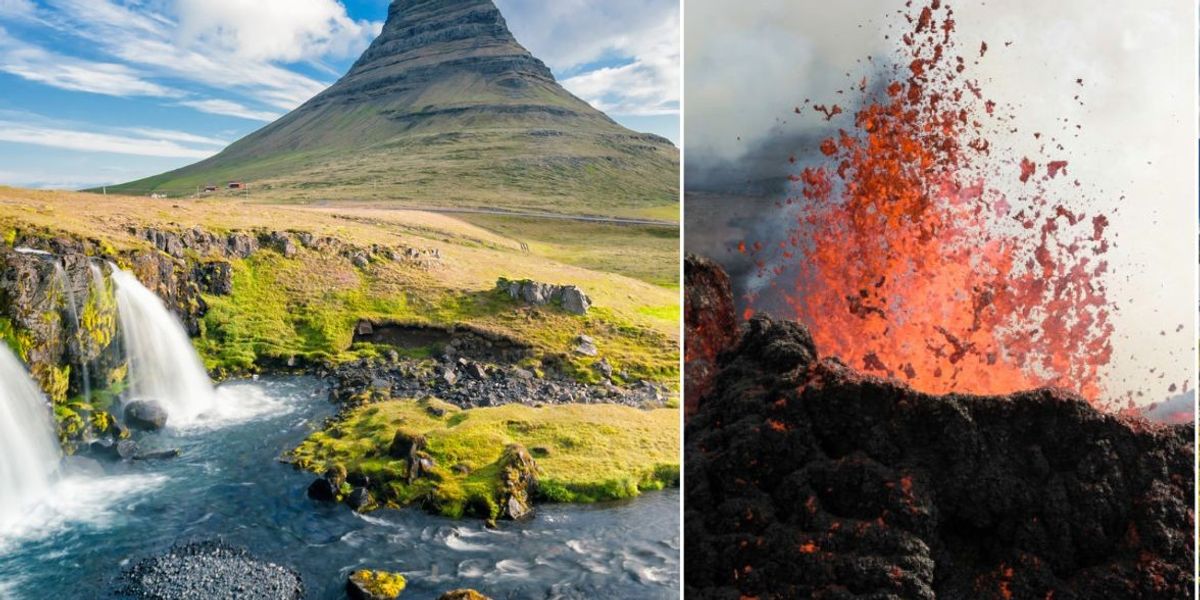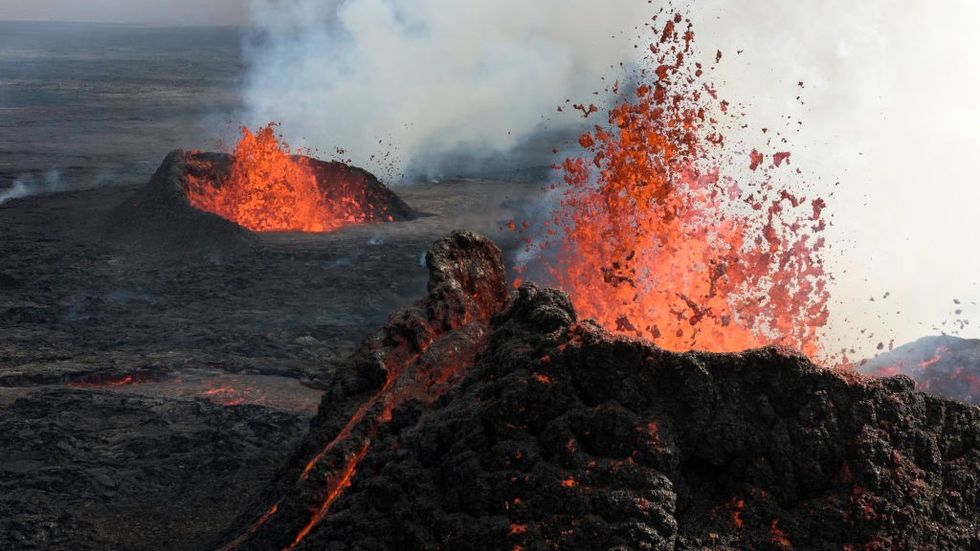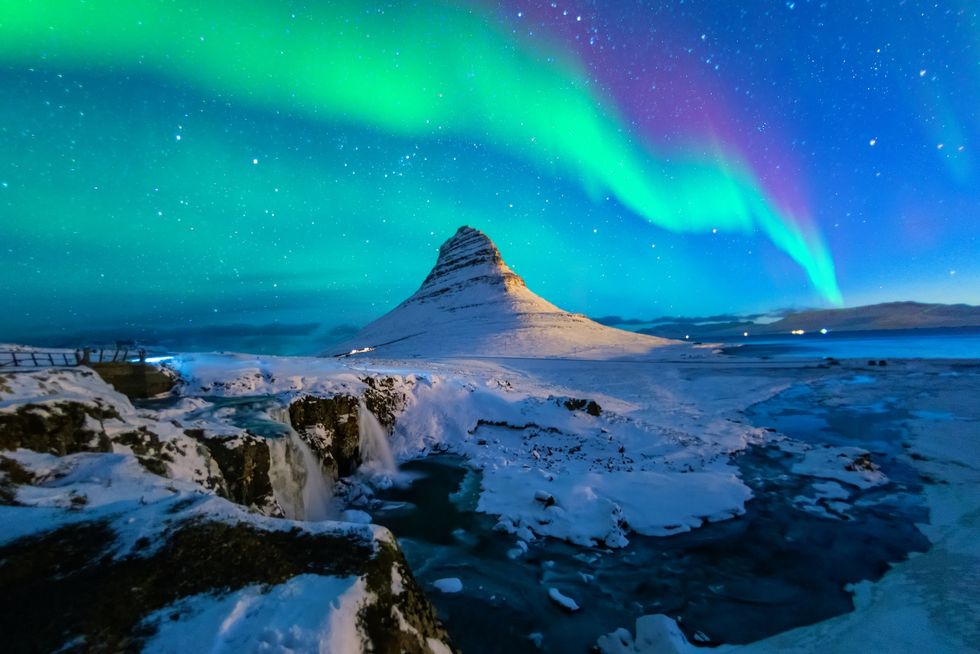Britons heading to Iceland on holiday have been given new advice following a series of volcanic eruptions.
The Foreign, Commonwealth and Development Office (FCDO) warned holidaymakers: “Volcanic eruptions and earthquakes are common in Iceland.
“Recently there has been a series of volcanic eruptions on the Reykjanes peninsula in south-west Iceland, the latest on May 29.
“These have affected the town of Grindavik and the area to the north of it. Stay away from this area. All roads to Grindavik and the surrounding area are closed.

June 2, 2024: Sundhnúkur volcano on the Reykjanes peninsula has erupted five times since December
GETTY IMAGES
“The likelihood of further eruptions in this location remains high. Check local media for updates and follow the Iceland authorities’ advice on travel to the area.”
Britons were urged to check for alerts and advice from the Icelandic Met Office, Safe Travel Iceland and Almannavarnir Facebook page.
The FCDO warned: “Risks from any volcanic activity include travel delays and cancellations, poisonous volcanic gases, rock falls and landslides, and flooding.”
The Government department provided a list of organisations Britons in Iceland can consult for further information.
Organisations with information on volcanic eruptions and earthquakes in Iceland
- Icelandic Department of Civil Protection and Emergency Management – includes health and safety advice
- Icelandic Road and Coastal Administration
- Institute of Earth Sciences
- London Volcanic Ash Advisory Centre
- Icelandic National Broadcasting Service
The FCDO provided advice for Britons on extreme weather and natural hazards, including how to prepare and what to do if you’re affected.
The guidance on volcanic eruptions reads: “There are many volcanoes located around the world. If a volcano erupts, this can cause loss of life and widespread damage to property and transport and other infrastructure.
LATEST DEVELOPMENTS

Holudaymakers flock to Iceland to catch a glimpse of the Northern Lights
GETTY IMAGES
The impact of an eruption depends on many things, including how close the volcano is to towns and cities, and whether there is any warning of the eruption.
“The effects may include ash and gas being released into the air, making it harder to see or breathe, contamination of water supplies, and other extreme weather events (such as floods or wildfires).”
Britons can learn more about volcanoes from the British Geological Survey, and consult health advice from TravelHealthPro.
Holidaymakers in Iceland should consult the FCDO for information on entry requirements, safety and security, health, and getting help in an emergency.
Further afield, British tourists in Canada have been given a safety warning including the risk of sudden fire outbreaks.













Post comments (0)